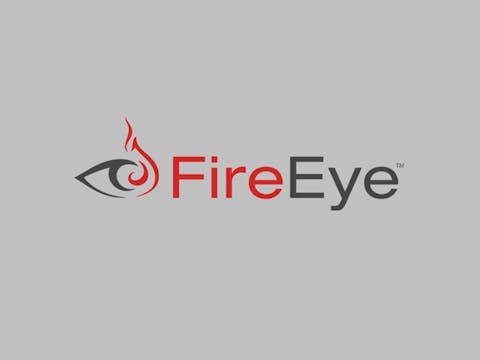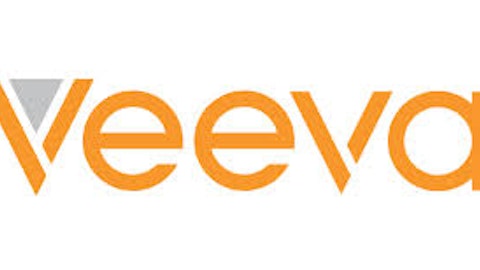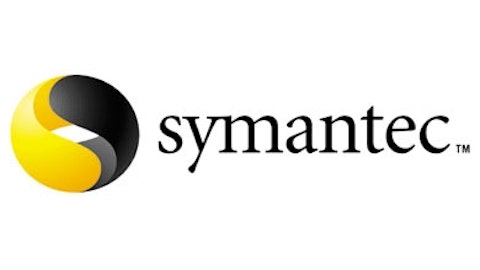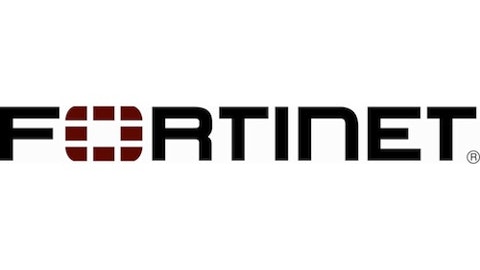Are cyber security stocks the “new” biotech when it comes to being an explosive sector of gains? Investment bank Goldman Sachs Group Inc (NYSE:GS) seems to think so, and we tend to agree with them. Among some of the reasons cited by Goldman Sachs for their bullish outlook on the market is that both the number of cyber attacks is assumed to increase, while the attacks are projected to become yet more sophisticated. Security breaches are now commonplace, and even some of the largest corporations and establishments in the world have been subjected to harmful and embarrassing breaches and stolen data. This is sweet music to the ears of security companies, whose stocks tend to get a little boost after every major attack makes people question the safety of their favorite sites and the internet in general. Some cynics might even suggest that a few of the harmful attacks are caused by the security companies themselves, to make their products all the more necessary. While we won’t go down that road, we can say that the ISE Cyber Security Index is up 22% year-to-date, much better than the S&P 500’s paltry 3% returns. So with that in mind, let’s take a look at three of top stocks in this sector, thos being FireEye Inc (NASDAQ:FEYE), Palo Alto Networks Inc (NYSE:PANW) and Fortinet Inc (NASDAQ:FTNT), and see what hedge fund sentiment has to say about them.

Most investors can’t outperform the stock market by individually picking stocks because stock returns aren’t evenly distributed. A randomly picked stock has only a 35% to 45% chance (depending on the investment horizon) to outperform the market. There are a few exceptions, one of which is when it comes to purchases made by corporate insiders. Academic research has shown that certain insider purchases historically outperformed the market by an average of seven percentage points per year. This effect is more pronounced in small-cap stocks. Another exception is the small-cap stock picks of hedge funds. Our research has shown that the 15 most popular small-cap stocks among hedge funds outperformed the market by nearly a percentage point per month between 1999 and 2012. We have been forward testing the performance of these stock picks since the end of August 2012 and they have returned more than 142% over the ensuing 32 months, outperforming the S&P 500 Index by nearly 84 percentage points (read the details here). The trick is focusing only on the best small-cap stock picks of funds, not their large-cap stock picks which are extensively covered by analysts and followed by almost everybody.
So, let’s start with FireEye Inc (NASDAQ:FEYE), the California-based company that was founded in 2004 by Ashar Aziz. FireEye has enjoyed an impressive spring on the NYSE, increasing by 71.3% year-to-date. As mentioned however, these gains aren’t necessarily as impressive as they would be in a more stable stock, as the stock has been highly volatile, with the stock price reacting to security threats in the news, and real and imagined mergers and acquisitions (M&As). In late 2013 FireEye Inc (NASDAQ:FEYE) acquired Mandiant and later, in May 2014, it also added nPulse Technologies to its list of acquisitions. Possibly, real M&As are factors that will have the possibility to drive the stock in the future. According to the latest round of 13F filings, large stakes in the stock were taken during the first quarter of 2015 by John Thaler from JAT Capital Management and Jim Simons from Renaissance Technologies, who bought with 1.74 million and 1.17 million shares respectively. 43 funds in our database had $573 million invested in the company, up on both counts from 37 funds with $454 million invested.
Follow John Thaler's JAT Capital Management
Palo Alto Networks Inc (NYSE:PANW), not surprisingly based in California, was founded in 2005 by Nir Zuk and went public during the summer of 2012 through an initial public offering (IPO). Since then the stock has increased by 240% and is up by 47.4% year-to-date. The results for the company’s fiscal third quarter of 2015, landed it another earnings beat, its fourth in a row. Besides reporting lower losses per share than expected, revenue grew 55% year-over-year, while it also detailed improving market share for is services. Exactly as its peers, Palo Alto Network is also active on the M&A front, acquiring startup CirroSecure during the spring, and Morta Security and Cyvera last year. Christopher Lord’s Criterion Capital decreased its holding in Palo Alto Networks Inc (NYSE:PANW) by 42% during the first quarter, but maintains a large position of 1.02 million shares with a value of $148.75 million. Columbus Circle Investors on the other hand added shares to its own holding, leaving it with a stake of 786,387 shares. Overall, hedge fund ownership in this stock also increased during the first quarter, to 47 funds in our database from 43, and with total investment climbing to $953 million from $793 million.
Last on our list is Fortinet Inc (NASDAQ:FTNT), another hot stock this year, having increased 39.9% year-to-date and 81.6% during the last year. Fortinet Inc was founded by brothers Ken and Michael Xie in 2000, and like the other stocks on our list, is also based in California. Fortinet Inc (NASDAQ:FTNT) has also been active on the M&A market, announcing in May that it had acquired California-based Meru Networks (NASDAQ:MERU). The market for cyber security is likely to see more and more acquisitions, and it is probably going out on a limb to suggest one or all of the three companies discussed here will be involved. Ken Griffin decreased his stake in Fortinet Inc during the first quarter of 2015 by 19% to 3.21 million shares, while Donald Chiboucis increased his stake by 39% to 3.17 million shares. Chiboucis’ Columbus Circle Investors is clearly bullish on the sector, also owning a stake of 608,766 shares with a value of $23.89 million in FireEye. However, funds we track were not as optimistic about Fortinet as they were the previous two security firms, with fund ownership in Fortinet dropping to 28 from 33 during the first quarter, and aggregate investment sliding to $349 million from $397 million.
Disclosure: None





